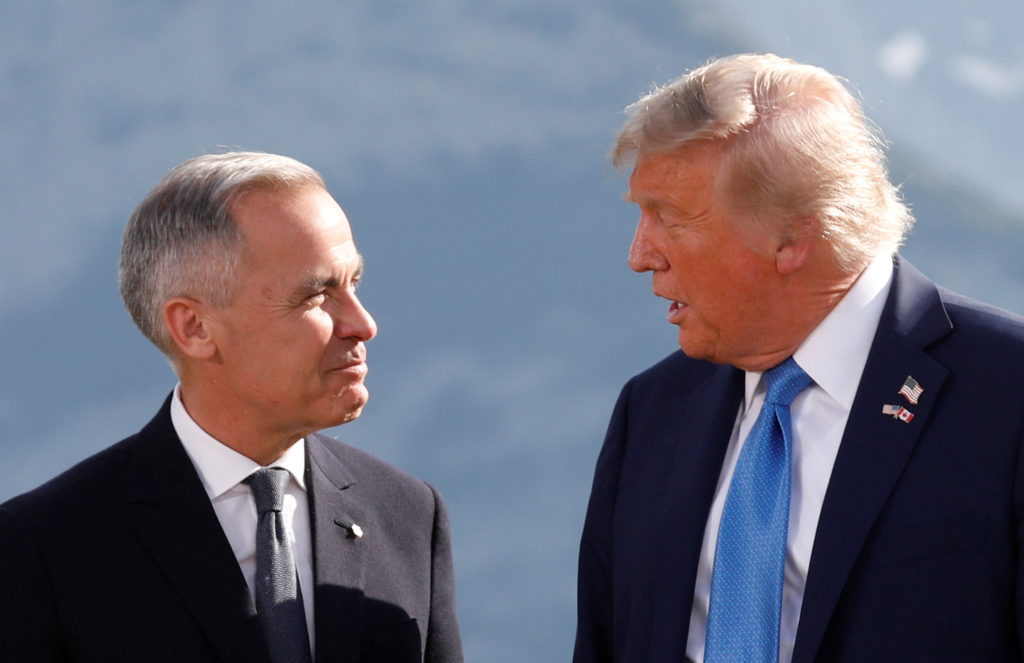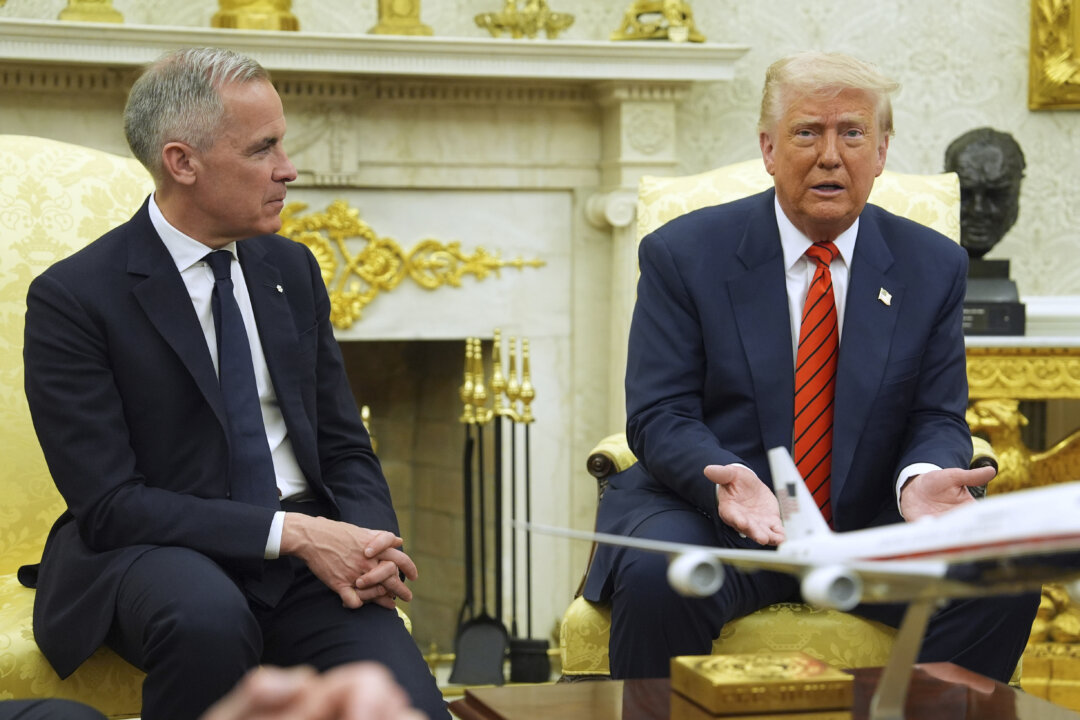President Trump Issues Tariff Threat to Canada Amid Palestinian State Recognition and Trade Talks
President Trump warned Canada of a 35% tariff threat, linking it to Canada's recognition of a Palestinian state and ongoing trade negotiations, highlighting high stakes.
Subscribe to unlock this story
We really don't like cutting you off, but you've reached your monthly limit. At just $5/month, subscriptions are how we keep this project going. Start your free 7-day trial today!
Get StartedHave an account? Sign in
Overview
- President Trump issued a stern warning to Canada following its recognition of a Palestinian state, signaling potential negative impacts on their bilateral relations.
- Trump views Canada's diplomatic move as a significant complication for ongoing trade negotiations, leveraging the Palestinian statehood issue to exert pressure.
- The President explicitly threatened Canada with a substantial 35% tariff on goods if a new trade agreement is not successfully concluded between the two nations.
- This tariff threat underscores the high stakes involved in the current trade discussions, with a specific deadline approaching for a resolution to be reached.
- Trump's strategy links Canada's foreign policy stance directly to economic consequences, intensifying the pressure during critical bilateral trade talks.
Report issue

Read both sides in 5 minutes each day
Analysis
Center-leaning sources frame Trump's tariff actions as politically motivated and inconsistent, using trade policy as leverage for unrelated grievances. They emphasize the "stumbling blocks" and "coercion" tactics, highlighting legal challenges and the "jumble of reasons" he cites, suggesting an erratic approach to international trade.
Articles (7)
Center (3)
FAQ
Canada plans to recognize Palestine as a state at the United Nations General Assembly in September 2025 due to what it sees as the erosion of prospects for a two-state solution and to support peace, security, and dignity for civilians. This recognition is based on requirements for reforms by the Palestinian Authority, including governance reform, elections excluding Hamas, and demilitarization.
Canada's recognition is predicated on the Palestinian Authority's commitments to reforms, including governance reform by President Abbas, holding general elections in 2026 with no participation from Hamas, demilitarization of the Palestinian state, and Hamas releasing hostages, disarming, and not participating in future governance.
President Trump issued a threat to Canada of imposing a 35% tariff on goods if a new trade agreement is not reached, linking the tariff threat directly to Canada’s recognition of a Palestinian state and using it as leverage during ongoing trade negotiations.
Canada commits to supporting democratic governance in Palestine, increasing humanitarian aid including $30 million for Palestinian civilians and $10 million to stabilize the West Bank, and working with international partners to develop a credible peace plan that ensures governance, security, and aid delivery.
Israel and the U.S. oppose recognizing Palestine as a state under current conditions, viewing the Palestinian Authority as an alternative to Hamas but refusing to accept the recognition that complicates peace talks. The U.S. special envoy is actively engaged in talks with Israeli leadership amidst this situation.
History
- 3M

 3 articles
3 articles




